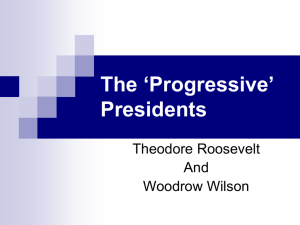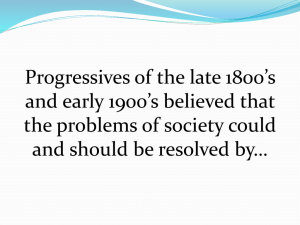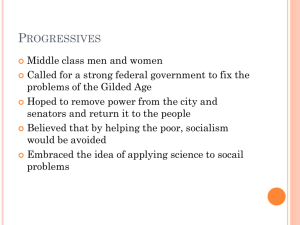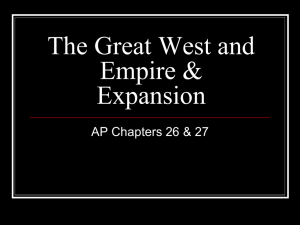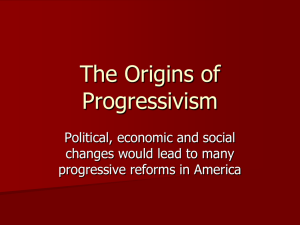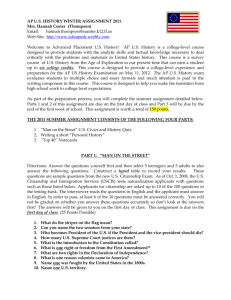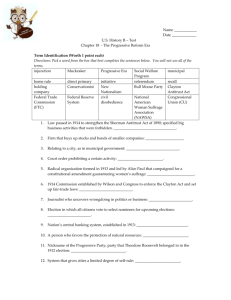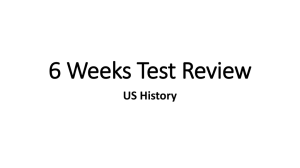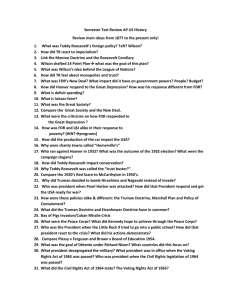notes
advertisement
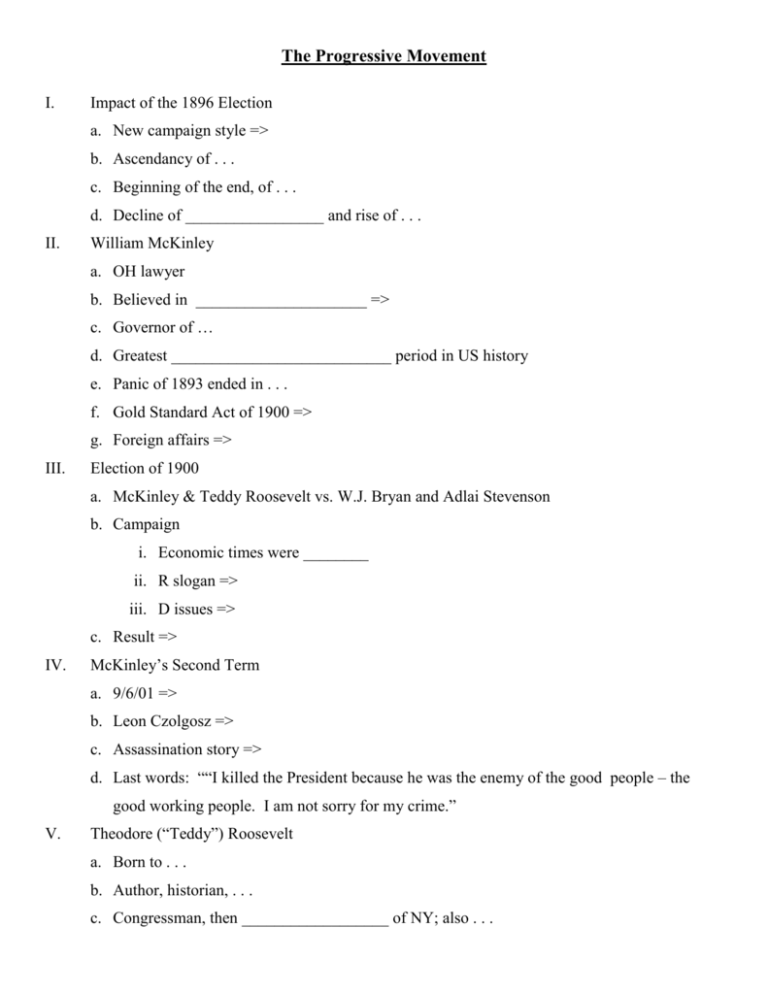
The Progressive Movement I. Impact of the 1896 Election a. New campaign style => b. Ascendancy of . . . c. Beginning of the end, of . . . d. Decline of _________________ and rise of . . . II. William McKinley a. OH lawyer b. Believed in _____________________ => c. Governor of … d. Greatest ___________________________ period in US history e. Panic of 1893 ended in . . . f. Gold Standard Act of 1900 => g. Foreign affairs => III. Election of 1900 a. McKinley & Teddy Roosevelt vs. W.J. Bryan and Adlai Stevenson b. Campaign i. Economic times were ________ ii. R slogan => iii. D issues => c. Result => IV. McKinley’s Second Term a. 9/6/01 => b. Leon Czolgosz => c. Assassination story => d. Last words: ““I killed the President because he was the enemy of the good people – the good working people. I am not sorry for my crime.” V. Theodore (“Teddy”) Roosevelt a. Born to . . . b. Author, historian, . . . c. Congressman, then __________________ of NY; also . . . d. Capitalist, but also known as . . . e. Leader of _________________________ Party & . . . f. First Progressive Era President VI. Problems Facing America, 1900 a. Political system problems i. Corruption in . . . ii. City machines => iii. Wanted to increase … b. Economic problems i. Unfair . . . ii. Working conditions => iii. Hostility towards __________________ iv. Business consolidation 1. Between 1897 and 1904 . . . 2. Largest merger => 3. By 1904, 318 companies controlled . . . 4. One firm produced over . . . c. Social problems i. Living conditions . . . ii. Gap between _____________ and ______________ iii. Pollution VII. Goals of the Progressive Movement a. Improve American life i. Increase _____________ justice 1. Women => 2. African & Native Americans => ii. Increase _____________ justice => b. Increase political participation => c. Fix problems of . . . d. Only thing big enough to take on big business … VIII. Members of the Progressive Movement a. Middle Class i. _____________ Professionals => ii. Middle management => iii. Concerned about . . . iv. Also concerned about . . . b. Farmers i. Populist Party ideas ii. Breakup … iii. Low tariff, __________ credit => c. Unionized workers => d. Women i. Advocates for many . . . ii. Women’s suffrage => iii. Social welfare => iv. Temperance => e. Journalists i. “_____________________” => ii. Highlighted . . . iii. Reports led to … iv. Upton Sinclair => v. Jacob Riis => vi. Lincoln Steffens => IX. Progressive solutions a. Political participation i. Direct election of . . . ii. Women’s Suffrage => iii. Increased . . . iv. Campaign limits => v. Secret ballot => vi. Machine Politics 1. City commission => 2. City manager => 3. Initiative / referendum => 4. Recall election => b. Economic i. “Trust busting” (_________________) 1. Trust: business entities that controlled a market, colluding to set . . . 2. Roosevelt => 3. Taft => ii. Pro-labor legislation => iii. Food and drug inspection => c. Social i. Environment / pollution (Roosevelt) 1. Transferred forests to . . . 2. Trees had to be . . . 3. Withdrew millions of acres of public land . . . 4. Used public land sale revenues . . . ii. Temperance & prohibition => X. What work remained to be done? =>
